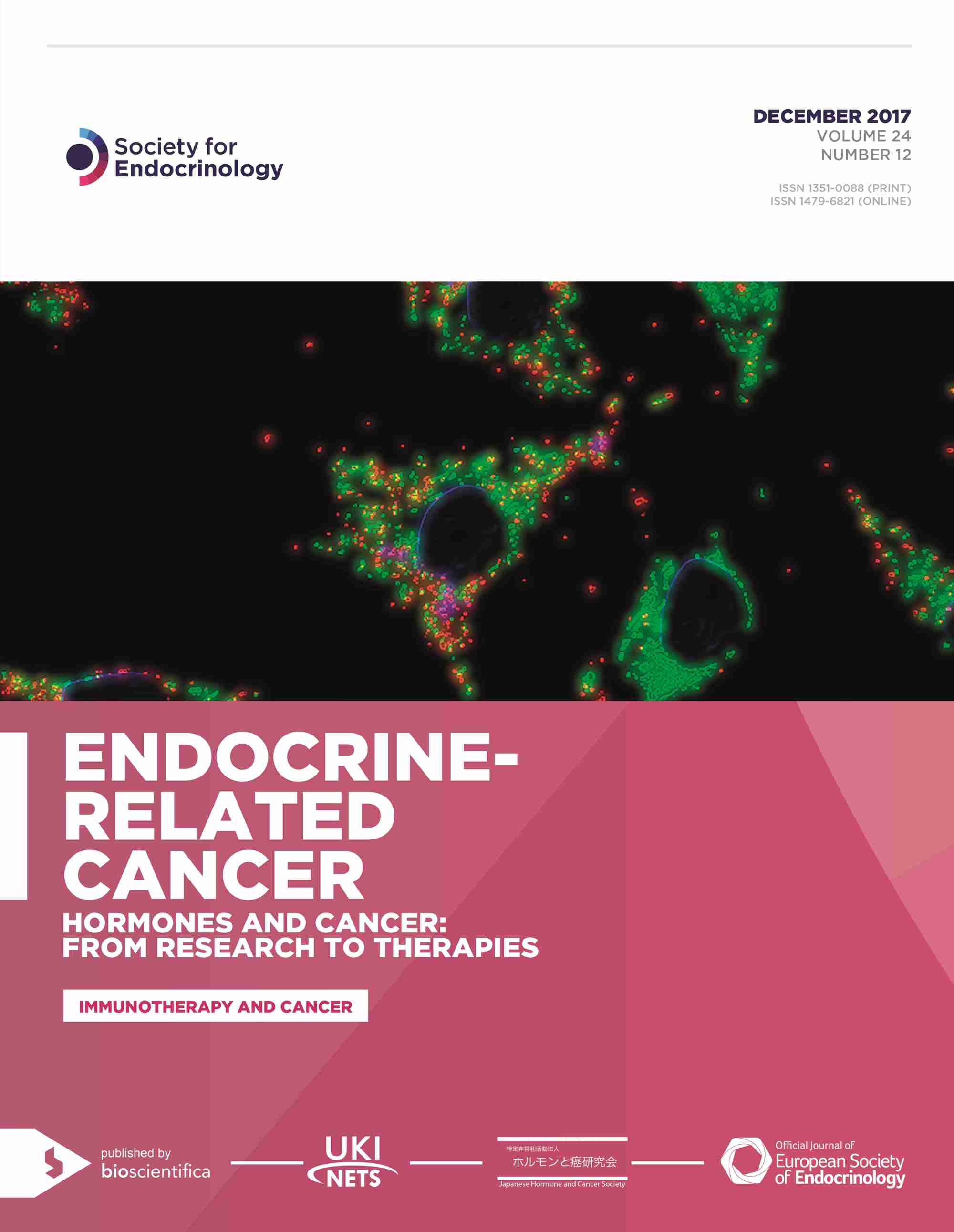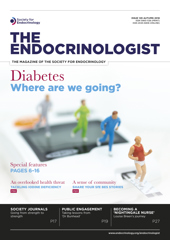- SfE BES Conference
- Clinical Update
- Endocrine Nurse Update
- Emerging Research Leaders
- Thyroid Ultrasound
- National Clinical Cases
- Bitesize webinars
-
- Engaging the patient asynchronously
- Difficult consultations and unpopular decisions
- Consultant in a new era
- How to approach ACTH-dependent Cushing’s now there’s no CRH
- Digital Health and Pathways
- Opportunities for advancing your career: Advanced Clinical Practice (ACP) and Health Education England credentialing
- What clinicians need to know about use of Telehealth for outpatient endocrine care
- Nurse led services for Clinicians/all healthcare professionals
- Bitesize webinar: Transition in Endocrinology
- Integrated pathways
- Bitesize webinar: Advice & Guidance and Patient-initiated follow-up
- Bitesize webinar: Non-functioning pituitary microadenomas: how to deal with them
- Virtual Coffee Chats
-
- Virtual Coffee Chats
- Registration
- Virtual Coffee Chat: Building and maintaining industry partnership
- Virtual Coffee Chat: Engaging the Public with Science
- Virtual Coffee Chat: Developing and Managing an Endocrine Nurse team- creating business cases, establishing job plans and roles (Early Career)
- Virtual Coffee Chat: Developing and Managing an Endocrine Nurse team- creating business cases, establishing job plans and roles
- Virtual Coffee Chat: Pursuing academia alongside clinical practice
- Virtual Coffee Chat: Nurse involvement in clinical guideline development
- Publishing your research in a journal – ask a publisher anything
- Virtual Coffee Chat: Grants Clinic
- Virtual Coffee Chat: Grants Clinic with Dr Marika Charalambous
- Virtual Coffee Chat: Patient doctor communication in Diabetes – barriers and solutions
- National Training Scheme for the Use of Radioiodine in Benign Thyroid Disease
- National Endocrinology and Diabetes Taster Sessions
- Women's Health Summit
- NET Models
- Joint Irish-UK Endocrine Meeting
- Endocrine Genetic Testing
- Webinars
- Reproductive Endocrinology
- What is endocrinology?
- History of the Society
- Governance
-
- Apply for a role within your Society
- Society for Endocrinology Council
- Clinical Committee
- Corporate Liaison Committee
- Finance Committee
- Nominations Committee
- Nurse Committee
- Programme Committee
- Public Engagement Committee
- Science Committee
- Events and Training Committee
- Society governance review
- Grants Panel
- Annual reports and financial statements
- Our activities
- Join our prizes and awards working group
- Equality, Diversity and Inclusion
- Our policies
- Who's who
- Work with us
- Leaving a legacy
- Privacy
- Society strategy 2024 - 2027
- Spring 2024
- Winter 2023
- Autumn 2023
- Summer 2023
- Spring 2023
- Winter 2022
- Autumn 2022
- Summer 2022
- Spring 2022
- Winter 2021
- Autumn 2021
- Summer 2021
- Spring 2021
- Winter 2020
- Autumn 2020
- Summer 2020
- Spring 2020
- Winter 2019
- Autumn 2019
- Summer 2019
- Spring 2019
- Winter 2018
- Autumn 2018
- Summer 2018
- Spring 2018
- Winter 2017
- Autumn 2017
- Summer 2017
- Winter 2016
- Autumn 2016
- Summer 2016
- PDF Archive
- Endocrinologist Search
- Press Releases
-
- Obesity-related gut damage may worsen asthma symptoms
- Evidence-based recommendations on menopause management advise individualised care
- Obesity-related fertility issues may be improved by correcting blood sugar levels
- Dexamethasone effectively reduces COVID-19 deaths but potential diabetic-like complications should be monitored
- COVID-19 pandemic associated with disruptions to women's reproductive health
- New app helps parents identify treatable childhood growth disorders earlier
- Discover the truth about hormones & your health in new, myth-busting podcast series
- Vitamin D deficiency may impair muscle function
- Obesity is linked to heavy periods and impaired womb repair
- New podcast series reveals the truth about hormones and health
- Increased breast cancer risk in obesity linked to fat cell chemicals
- Larger thighs associated with lower risk of heart disease in obesity
- High sugar diet may impair metabolic health & maternal care after pregnancy
- Mindfulness helps obese children lose weight
- Joint Society statement issued on cancer risk & hyperthyroidism
- Moderate intensity physical activity associated with lower risk of diabetes
- Vitamin B12 deficiency linked to obesity during pregnancy
- Common anti-inflammatory may increase risk of diabetes
- Stress with disrupted body clock increases risk of metabolic disease
- New insights into cause and treatments for aggressive form of breast cancer
- Age is not a barrier to the benefits of weight-loss surgery
- Impaired liver function during pregnancy may increase risk of childhood obesity
- Limiting mealtimes may increase your motivation for exercise
- Too much caffeine during pregnancy may damage baby’s liver
- Strength training may reduce the risk of diabetes in obesity
- Society for Endocrinology & British Thyroid Association issue statement against new treatment recommendations for subclinical hypothyroidism
- Debate: Is the gut or the brain more important in regulating appetite and metabolism?
- Skin inflammation may increase your risk of type-2 diabetes
- Antioxidants may prevent cognitive impairment in diabetes
- Routine vitamin B12 screening may prevent irreversible nerve damage in type-2 diabetes
- Good nutrition could protect children from cognitive difficulties caused by early-life stress
- Women more resilient to extreme physical activity than previously reported
- Too much vitamin A may increase risk of bone fractures
- New link identified between inflammation and depression in type-1 diabetes
- Brain development disorders in children linked to common environmental toxin exposures
- Children born to mothers with low vitamin D levels may develop autism-like behaviours
- Arthritis drug can lower sugar levels in diabetes
- Potential new target for reducing osteoporosis risk in men
- Taking paracetamol during pregnancy may reduce fertility of daughters
- Link found between morning sickness, smoking and healthy pregnancies
- High protein diets point to new anti-obesity treatments
- Vitamin D may be simple treatment to enhance burn healing
- Debate: The fight against obesity: To tax or not to tax?
- Kisspeptin boosts male sexual appetite and reduces anxiety
- Pregnant women exposed to common toxin have lower levels of hormone crucial for brain development
- Women with PCOS should be screened for mental health disorders
- Vitamin D supplements could help pain management
- Breast cancer risk is more affected by total body fat than abdominal fat
- New nanotechnology application for difficult-to-treat cancers
- The Society for Endocrinology supports the British Thyroid Association position on treating underactive thyroid
- Joint statement on NHSE PrEP funding decision
- Researchers may have found how high-protein diets cause weight loss
- Low vitamin D levels linked to increased risk of bladder cancer
- Maternal B12 deficiency may increase child’s risk of type-2 diabetes
- People with low oxytocin levels suffer reduced empathy
- New guidance documents to tackle life-threatening endocrine emergencies
- Happy cows make more nutritious milk
- Sitting down for long periods when pregnant linked to weight gain and depression
- New drug provides safer alternative to conventional IVF treatment
- Society for Endocrinology response to EU referendum result






